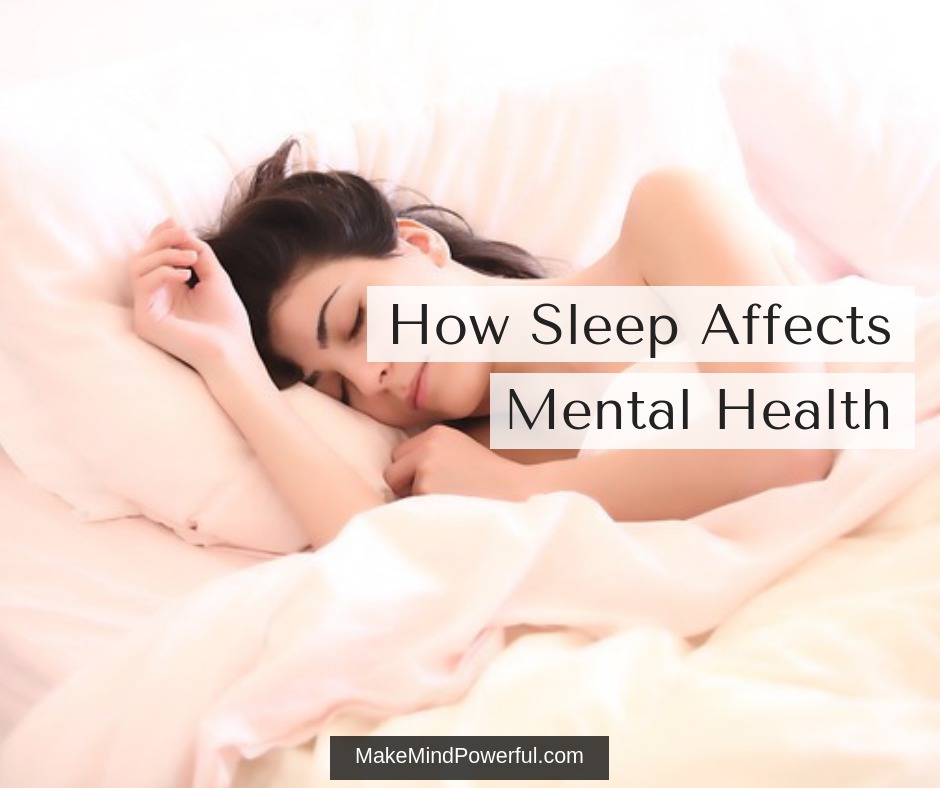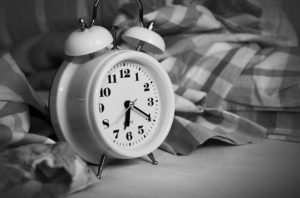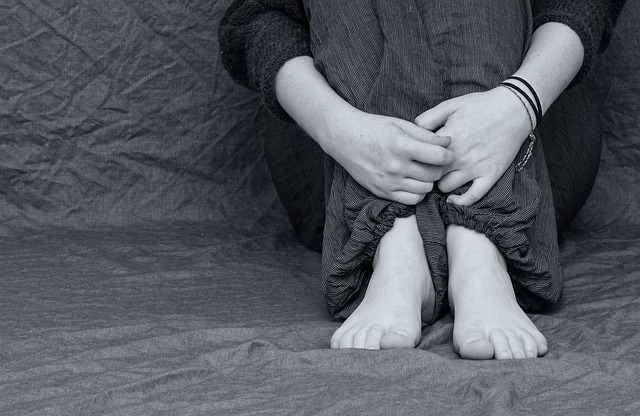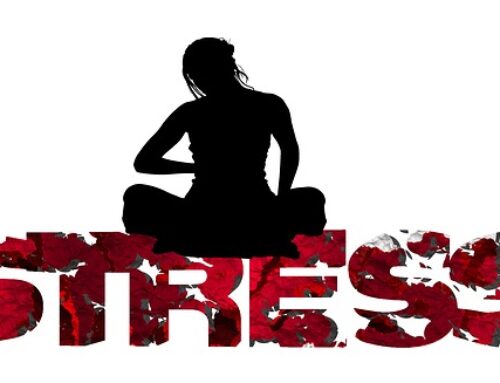Consistent restlessness at night and mental health issues are so deeply connected. Being restless for a night is one thing, but its consistency for a longer period of time in connection with continues despair, agitation and unease can lead to chronic mental disorders. For anyone who is experiencing difficulty in sleeping must take measures to restore normal sleep.
We all have different sleeping habits naturally. Some people go to sleep just after laying down on the bed, relaxing their body, and you’ll hear them snort right away. While others take some time, they’ll move around, change different positions, try to get rid of various thoughts, and then gradually fall asleep. In addition to that, the time we take to fall asleep depends upon our physical activity.
If you are feeling really tired due some long hours of work or hadn’t had any time all day to sit back and relax, then once you are in your cozy room, on the soft bed, you’ll feel an undeniable urge to go to sleep as soon as possible.
With that, it can be said that the prep time any individual take to fall asleep vary. But once we are in the sleeping mode, we go through different psychological stages, and these stages explain different levels of sleep.
Understanding Sleep Cycle
As soon as we become semi-conscious of our surroundings, and our body is relaxed we enter in our sleeping session. And from there, we experience various levels of sleep progression. To sum up the sleeping process, scientists have demonstrated different 4 stages of the sleep cycle excluding REM (Rapid Eye Movement). The completion of the cycle takes about 90 to 110 minutes in total, and then the cycle repeats itself. Each stage lasts for about 5 to 15 minutes. Let’s learn about them a little.
A) Light Sleep
Stage 1– In the first part of the sleep, your muscle activity slows down and your eyes keep on moving slowly as well. Here, you are not completely unconscious and can get awake easily.
Stage 2– In the second stage of sleep, your body prepares itself to go deep into the sleep. For that, your brain waves slow down, eyes stop moving at all, and your body temperature begins to drop. With such slow activity of your internal systems, your heart rate drop down as well, making you perfectly prepared for deep sleep.
B) Deep Sleep
Stage 3-In this stage, the brain waves become extremely slow and are called delta waves. Here, these delta waves intermingle with faster and smaller brain waves. Your body will be completely relaxed. The EEG recordings taken at this stage are extremely slow.
Stage 4– This is the final stage of non-REM sleep. At this level, your heart rate is very slow, and your brain keeps on producing delta waves. If awakened suddenly at this stage, you may feel disoriented and unable to figure out the surroundings.
You remain almost 4-7 hours in light and deep sleep every night normally. And the period of REM lasts for about 90 to 120 minutes.
C) REM Sleep
This is the transitional stage between the non-REM (first 4 stages of sleep) and total awakening. In this level, your brain works almost like it functions when you are awake. Your body temperature breathing rate, and heart rate increases to the normal levels that you have when awake.
Sure, your eyes will be shut but they’ll move from one side to other rapidly. The eye movement may be because of dreaming, as this is the stage where you see the dream and can recall them afterward.
It has been observed that REM sleep is the most important stage of sleep. It increases a person’s emotional health, elevates the learning capabilities and also sharpens up their memory.
How Sleep Affects Your Mental Health
Learning from the different stages of sleep, you can see that at every stage your whole body, especially brain and heart changes its movements. The disruption in the normal sleep cycle can distort all the internal mechanisms, and thus pose harmful psychological effects.
The disruption in sleep increases the production of stress hormones, disturb the levels of neurotransmitters and wreck the brain activities. All this triggers impaired thinking, and emotional distress.
In aggressive conditions, this phenomenon can lead to complex mental disorders. So, in order to keep your mental health perfect, it is extremely important to not stress out your mind. If you are having problems in falling asleep, then do not complicate your mind with distress, rather keep it cool and definitely consult with a doctor.
Psychological Disorders Associated With Sleep Deprivation
Sleeping disorders and psychological problems go hand in hand. You need to be very vigilant about yourself to eradicate these problems. Following four are the most common psychiatric issues that can be developed because of sleep deprivation.
Bipolar Disorder
If you are having trouble in falling asleep at night constantly, then you’ll observe a sudden shift in your mood at your work, or while having dinner with family or just hanging around with your friends. This is because restlessness during sleep hours can cause dramatic effects in your hormonal balance, affecting your brain, and thus bringing tremendous variation in your mood. Excessive mood swings, peaks of depression and restlessness are some of the most common effects of sleeplessness, and also the major signs of bipolar disorder.
Sleep issues and bipolar disorder go hand in hand. Severe your mental conditions are, more are the chances of your sleep problems. Studies have shown that at the manic stage of bipolar disorder, 69 to 99 percent of the studied patients experienced loss of sleep or insomnia. In the case of bipolar depression, 23 to 78 percent of patients suffered from hypersomnia (oversleeping), and the remaining experienced restless sleep or insomnia. Lack of sleep is not only the after effect of bipolar disorder but is also the trigger for manic depression.
Depression
You must have experienced trouble in falling asleep when you are distressed with any work problem, family issue, or something wrong at school. It has been verifying through different studies that more than 90% of the adults and children who are suffering from any sort of depression also suffer through sleep issues as well. And in sleep problems, sleep apnea (Distorted breathing problem that causes awakening multiple times) and insomnia (difficulty in falling asleep or remaining asleep) are the most common problems.
In a longitudinal survey conducted through Health Maintenance Organization in Michigan, to find out the relationship between psychiatric disorders and sleep disturbance in youngsters between age 21 and 30 revealed astonishing results. A total of 1200 students were interviewed twice randomly, in 1989 and in 1992. It has been found that those who had a history of insomnia at the time of the first interview were four times more vulnerable to develop major depression in the next interview.
Additionally, it has been reported that people suffering from depression and also experiencing sleep problems do not respond well to the treatments to repress depression; while those without sleep problems respond to such treatments very well.
Attention Deficit Hyperactivity Disorder (ADHD)
ADHD is a commonly occurring medical condition in children that stuck with them through the early adulthood period. Inattentiveness, hyperactivity, and impulsivity are few of its symptoms. About 25 to 50 percent of the Children suffering from ADHD are affected by a number of sleep problems. A few of the most common sleeping disorders associated with ADHD are short sleep duration, restless slumber, and most importantly lack of sleep urge.
A research conducted to review the relationship between children with ADHD and their sleep routine has revealed that these children show more movements during the sleep, and have a higher rate of daytime sleep.
In another research comparing the percentage of breathing disorder between the children with and without ADHD demonstrated that more than 50% of the children suffering from ADHD have sleep-disordered breathing in comparison to the 22 percent children that do not have this medical condition. Any of such sleeping disorder elevates the major symptoms of ADHD i.e. emotional instability, inactiveness, and hyperactivity.
Anxiety
Anxiety and sleep can become interrelated problems most of the time, as being anxious can give you trouble in sleeping, while if you are unable to sleep then it can make you anxious.
It is better to consult a good doctor as soon as possible to tackle things in a timely manner. According to the Stress and Anxiety survey conducted in 2007, it has been found that more than half of the people dealing with both anxiety and sleep issues had developed the anxiety disorder due to the inability of falling asleep at night.
What Are The Key Factors For A Good Sleep?
A tranquil, long hour of uninterrupted, fully relaxed, soothing sleep is what all of us need. To feel energized in the morning and do all your stuff with full zeal, a good night sleep is all you need. For all of you who want to enjoy calm sleep, then the great quality of the following factors is the key. If you want to sleep better, then they’ll make you a sleeping beauty. And with a relaxed sleep, your mind will work better, think better, and stay protected from signs of mental weakness.
- Health
- Environment
- Attitude
- Lifestyle
The constant gloom of deep depression and anxiety are the two main health problems that affect your sleep, and vice versa. It is essential to tackle your mental health and sleep problems alongside in order to lead a healthy life. And to do that a positive attitude and hale and hearty lifestyle are extremely important.
Mind And Attitude
A shift in attitude can turn the table in your favor. To really solve any sort of issue, you have to have a strong will and positive feel about great results. And here, to sleep better, you can adopt unwinding and relaxing exercises.
These relaxation techniques help you to appreciate the goodness inside you, shovel off the negative thoughts, and to get ready your body for a relaxed nap. Rather than getting frustrated on the bed, it better to move your body in a healthy manner and then enjoy a relaxed slumber.
Lifestyle And Diet
And to get things better constantly, changes in your everyday routine are super important. A healthy lifestyle can bring a great effect on your health in all the possible ways and can improve your sleeping habits tremendously.
The easiest and the most fundamental change is to start eating a fresh vegetable, dairy products and the right amount of legumes. These products contain amazingly efficient chemicals that enhance our desire to sleep.
Conversely, products full of caffeine and sugar like chocolates (which of course we all love) have a tendency to keep your eye wide awake all night. Also, try replacing alcoholic and carbonated drinks with fresh juices and still water. You’ll get to see results within weeks. So, to sleep better and be hundreds of miles away from mental health problems, eating fresh is not a bad bargain.
Environment Matters
And of course, who can deny the magical powers of calories burning exercise in a cool green environment. An hour of strenuous exercise or a refreshing morning walk in a lush green environment can bring a great change in your life. Additionally, we have restrained our lives an excess of gadgets, and the insane use of social media; so it is better to switch off these screens and let the natural environment greet us.
If you really wish to sleep better than its highly recommended to remove distractions like TV, cell phones, play stations, and stuff like this out of your bedroom. Make your bedroom purely a place to relax, unwind, and sleep.
Inability to fall asleep is not only a devastatingly harmful problem itself rather it gives rise to incredibly terrible psychological problems as well. Interestingly (and unfortunately though), there are more than 70 different types of sleep disorders.
And if you are feeling any sort of difficulty in sleeping, then do not let your mind get away with it. Sleeping issues are very common and you can get back to normal sound sleep by following simple techniques.
Related:









Leave A Comment